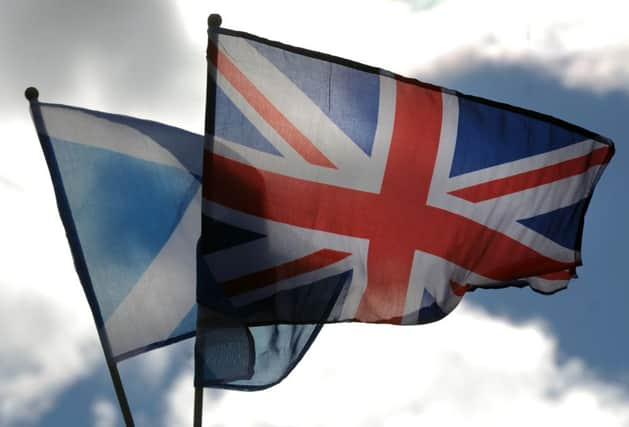Andrew Whitaker: Poor could sway independence vote


Both sides largely accept that there is all to play for and that a large number of Scots have yet to make up their minds on how they will cast their vote come 18 September.
It’s now more than two-and-a-half years since the SNP won its overall majority at Holyrood– a political fact of life that made a referendum on independence inevitable.
Advertisement
Hide AdAdvertisement
Hide AdSo far, the leaderships of both the Yes and No sides have by and large targeted influential sections of Scottish society such as big business, the legal fraternity and the military.
That fact has largely been borne out in the massive stream of reports by both pro and anti-independence backers over the last two years that have made pitches to those who already have a strong voice in Scottish public life.
However, the leaderships of both sides have yet to make any real attempt to pitch their arguments at less well-off Scots.
Alex Salmond, for all his astute political campaigning, has yet to go into socially deprived areas such as Glasgow’s Easterhouse and Edinburgh’s Wester Hailes and make a case as to why people should vote Yes this year.
The same goes for the UK government and the cross-party, anti-independence Better Together campaign, although its leader, former Labour chancellor Alistair Darling, unlike the Tory-Lib Dem coalition, appears to be aware this is an issue to which he needs to be wise.
There are Labour politicians who fear that Scots in the most poverty-stricken areas may vote Yes simply on the basis they believe they have nothing to lose.
All of which makes it surprising that Mr Salmond, one of the most skilled political campaigners of his generation, has yet to take his case for independence directly into socially deprived areas, where people’s voices are largely unheard by those in power.
There are, though, figures on both sides who understand that those with the least in Scotland could determine the outcome of the referendum and want to see the social justice case made for their respective views on the referendum.
Advertisement
Hide AdAdvertisement
Hide AdLabour MSP Neil Findlay has made what is arguably the most effective attempt to get to grips with this issue through his backing for the Red Paper collective – a socialist campaign to get more powers for Holyrood, to pursue greater social justice within the UK.
Former SNP deputy leader Jim Sillars is almost certainly very aware of the issue from a nationalist perspective, as will be Independent MSP Margo MacDonald.
However, unless leading figures in both referendum campaigns are prepared to speak directly to Scots in places such as Easterhouse and Wester Hailes, it’s possible their respective cases could be weakened.